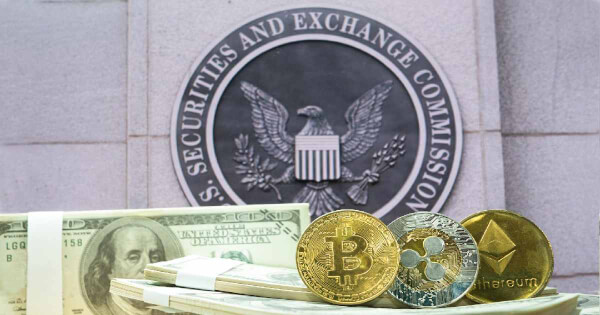US SEC Issues Summons to Influencers Promoting HEX, PulseChain, PulseX
Nicholas Otieno Nov 07, 2022 02:25
The crypto influencers are expected to fully cooperate with the SEC request.

According to a media report released on Sunday, the U.S. Securities and Exchange Commission (SEC) has reportedly issued a subpoena to influencers who were found promoting crypto coins, such as HEX, PulseChain, and PulseX.

Over the weekend, Swedish researcher Eric Wall shared an official letter from the SEC dated November 1, which was addressed to the influencers. The letter said the influencers might possess documents and data relevant to an ongoing investigation conducted by the SEC staff.
The regulator accompanied the letter with a subpoena that was issued as part of the investigation, which demanded the influencers in question produce the required documents by November 15.
In recent years, the world has seen the rise of crypto influencers – individuals who use their social media platforms to promote cryptocurrencies and blockchain-based projects.
There is no doubt that crypto influencers have the potential to reach a vast audience and bring much-needed attention to the industry. However, many have recently been promoting dubious crypto projects and pump-and-dump schemes.
Recently, social media mogul Kim Kardashian has been involved in what the class action case considered a pump-and-dump scheme.
Last month, Kim Kardashian was charged $1.26 million by the SEC for failing to disclose that she was paid £250,0000 to promote EthereumMax cryptocurrency on her Instagram page.
SEC Chairman Gary Gensler said the case was a “reminder” that celebrity endorsement did not necessarily make a product worth investing in.
In August, Ben Armstrong, a prominent crypto influencer on his YouTube channel popularly known as BitBoy Crypto, narrated how he partnered with a cryptocurrency project that ended up being a scam.
The problem is that most influencers are not financial experts and may not fully understand the risks involved in investing in cryptocurrency. Furthermore, influencers are paid to promote particular projects, which means that they may not be impartial.
Working with reputable brands with a good track record and transparency about their fees may help mitigate some of the risks associated with crypto investment.
Image source: Shutterstock.jpg)